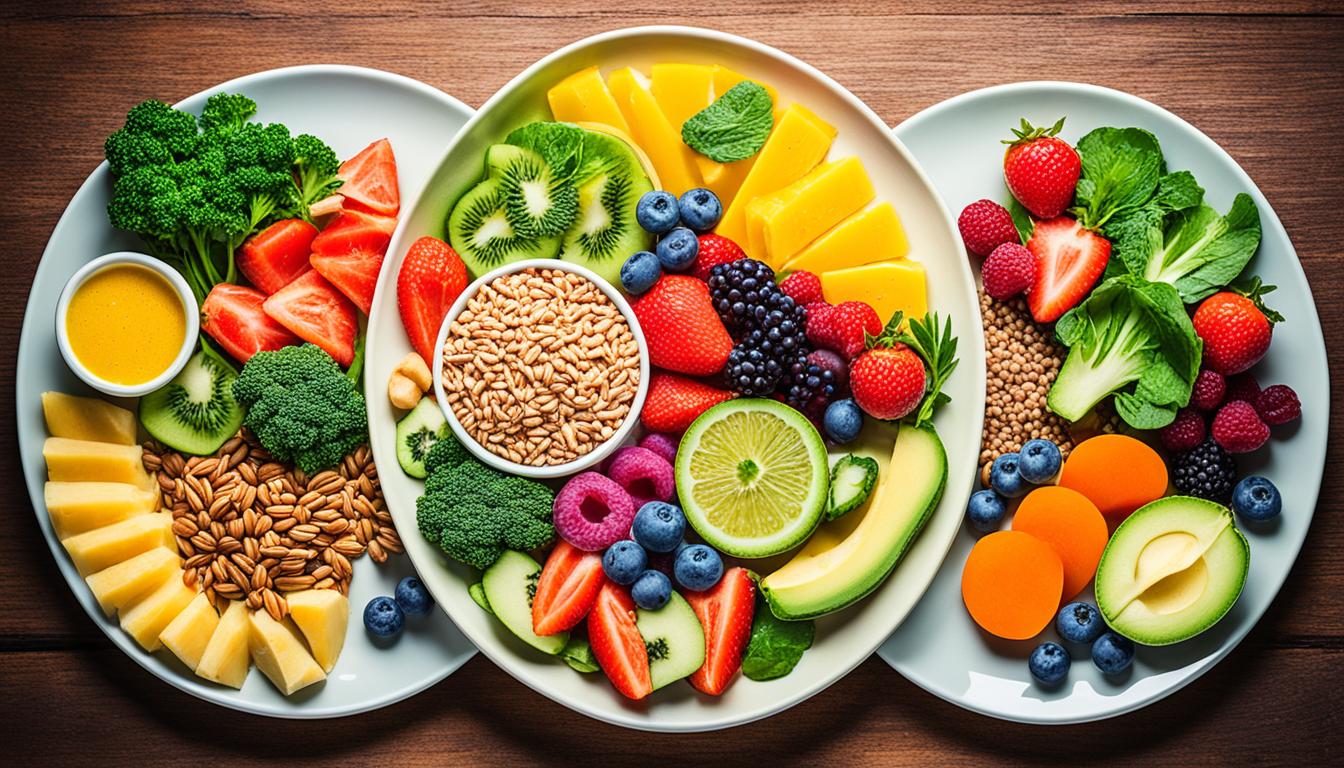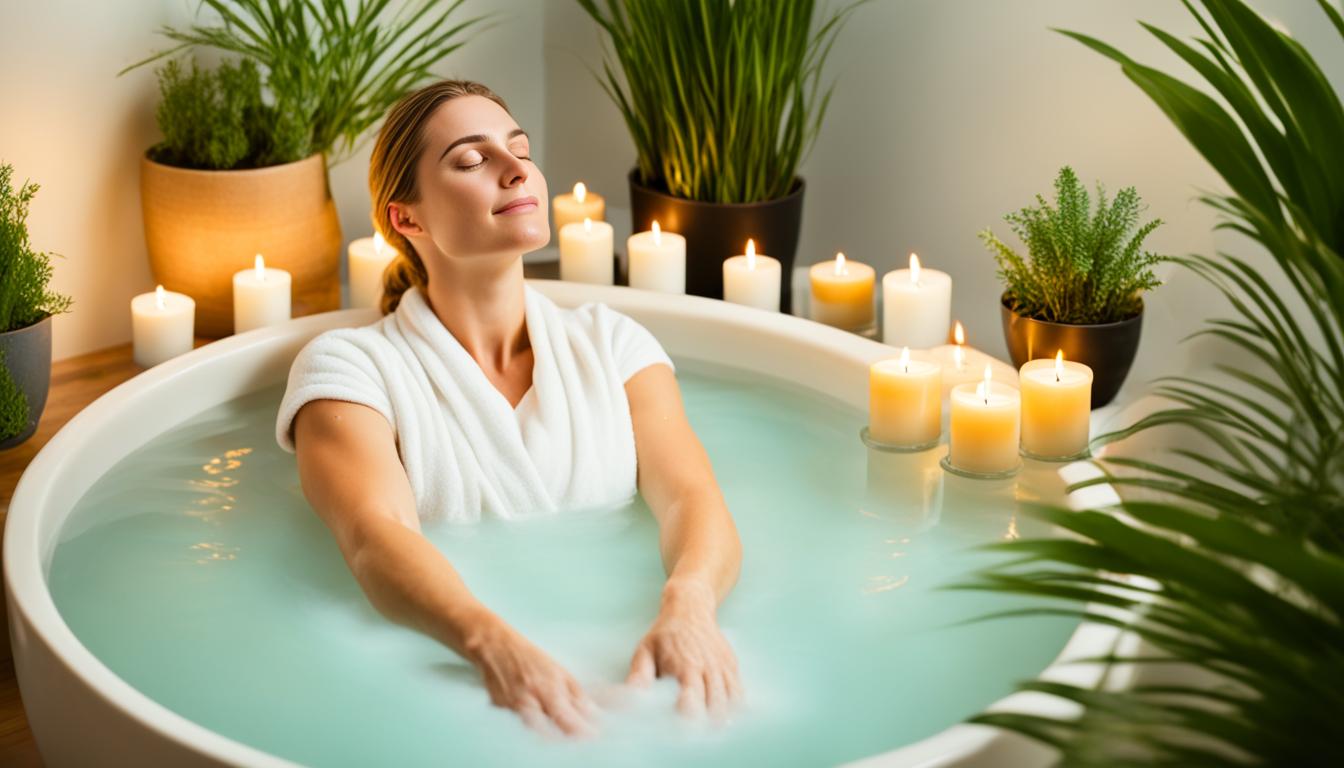Creating a self-care routine is essential for managing stress and maintaining both mental and physical health. By prioritizing wellness practices, individuals can nurture their well-being effectively. Contrary to popular belief, self-care isn’t about selfishness but about ensuring overall health and balance in life. From savoring simple pleasures like reading or enjoying nature’s fresh air to indulging in a relaxing bath, a well-rounded self-care regimen can significantly impact one’s quality of life.
Regularly unplugging from digital devices, being active, consuming nutritious foods, and engaging in creative outlets are vital components of an effective self-care routine. Integrating activities such as spending time in nature, exploring new environments, practicing positive affirmations, and winding down in the evenings can further enhance this wellness journey. Crafting a personalized plan, such as assembling a self-care basket and establishing regular care routines, helps solidify these efforts, making it easier to maintain consistent mental and physical health.
In this guide, we will explore ten actionable tips designed to help you maximize your monthly self-care. Embrace these strategies to foster a balanced, enriching lifestyle that supports your well-being.

Unplug for Mental Clarity
Taking time to disconnect from digital devices can have a profound impact on mental health. The concept of unplugging for wellbeing emphasizes reducing feelings of loneliness and mental overload caused by constant connectivity. Studies show that social connectedness can reduce the risk of anxiety and depression, highlighting the importance of stepping away from screens and fostering direct human interactions.
Benefits of Disconnecting
The advantages of a digital detox extend beyond just reduced stress and anxiety. Mindfulness training has been proven to significantly reduce teacher stress and burnout, as shown by randomized field trials. This underscores the broader benefits of stepping away from screens and engaging in mindful practices. Furthermore, research indicates that teacher well-being is closely linked to better student outcomes, illustrating the critical role self-care practices can play in professional and personal life.
Improving mental clarity is another notable benefit of disconnecting. Engaging in activities that don’t involve screens can bolster emotional granularity and psychological resilience. For more insights on how to effectively make use of unplugging, you can explore healthy ways to unplug and unwind.
Activities Without Screens
Engaging in screen-free activities not only provides a sense of accomplishment but also enhances mental clarity. Simple activities like solving puzzles, reading, or participating in creative projects can be enriching and fulfilling. To explore how various activities can contribute to self-care and overall well-being, check out best self-care challenges. Additionally, the prospective associations between social connectedness and mental health underline the importance of these activities in fostering better mental health.
Lastly, it’s worth noting that unplugging for wellbeing often leads to improved connections with others. Engaging in social settings without the interference of screens can deepen relationships and contribute to a sense of community. To understand more about the importance of mental clarity and taking time to unplug, visit how unplugging can benefit mental health.
Move Your Body Regularly
Regular physical activity plays a crucial role in boosting happiness and mental health. Self-care is often misperceived as indulging in activities like bubble baths and shopping to ‘treat yourself’, but it actually involves prioritizing micro-actions for increased physical and mental well-being. Incorporating movement into one’s daily routine, such as stretching, walking, or joining exercise classes, can greatly enhance well-being.

Physical Activity and Mental Health
Exercise for happiness is a powerful tool. Practicing self-care can reduce stress levels, enhance resilience, and improve overall mental well-being. The benefits of regular self-care include improving self-respect, self-compassion, and fostering better relationships with others. An interesting study found that spending time by water can lead to a calm internal state, improving mental health, according to Dr. Natalie Azar, NBC News medical contributor.
Setting aside time for self-care involves practical steps like preparing a ‘self-care buffet’ with different activity options, reviewing, and scheduling self-care time in your daily routine. Incorporating self-care into your daily routine can be done by finding small moments throughout your day, such as using commute time for meditation, turning daily chores into self-care practices, or engaging in short but beneficial activities like walks or meditation sessions. Dr. Shaakira Haywood Stewart, PhD, highlights that journaling can enhance self-awareness, emotional intelligence, and communication skills.
Visit this article to explore more self-care tips for nurturing your body.
Simple Ways to Get Moving
Here are some easy fitness routines to help you stay active. Daily physical wellness routines offer immediate and long-term health benefits. Engaging in volunteer work for a meaningful cause is beneficial for practicing self-care and gaining perspective on personal challenges, as highlighted by Frank Thewes, LCSW.
Neglecting physical self-care can lead to lifestyle-related chronic diseases and caregiver burnout. To combat this, include exercises that are easy and fun. Start with something as simple as stretching in the morning or taking a brisk walk during lunch breaks. Joining local exercise classes can also motivate you to stay consistent with your routine. Hope Weiss, LCSW, emphasizes that establishing a daily routine that emphasizes self-care provides a foundation for resilience against life’s challenges.
For more ideas on self-care, check out this blog. Practicing an at-home spa day as a form of pampering is a classic self-care method, suggests the article.
Remember, improving mental health through movement is not about intense workouts but about finding activities that make you happy and fit into your lifestyle. Even simple routines can make a significant difference in your overall well-being.
Nourish Your Body with Quality Food
Nourishing your body with quality food plays a pivotal role in enhancing both physical and mental health. Embracing a balanced diet ensures that your body receives the variety of nutrients it needs to thrive and maintain energy levels throughout the day. It’s not just about eating; it’s about consuming the right foods that contribute to your overall well-being.

Importance of Balanced Nutrition
A balanced diet is essential for sustaining bodily functions and supporting mental well-being. Incorporating a mix of fruits, vegetables, lean proteins, whole grains, and healthy fats ensures you get essential vitamins and minerals. This approach to nutritional self-care can lead to improved mood, better concentration, and higher energy levels. By focusing on healthy eating habits, you are not only caring for your body but also promoting mental clarity and emotional balance.
Easy, Healthy Meal Ideas
Preparing healthy meals doesn’t have to be complex or time-consuming. Start your day with a hearty breakfast like oatmeal topped with fresh berries and nuts, providing a good mix of fiber and protein. For lunch, a quinoa salad packed with colorful vegetables and a lean protein source like grilled chicken or tofu can be both filling and nutritious. Dinners can be kept simple with a baked salmon filet, served alongside steamed vegetables and brown rice. Snacks such as Greek yogurt, hummus with carrot sticks, or a handful of almonds can help sustain energy between meals. These easy meal ideas are perfect for maintaining a balanced diet and fostering healthy eating habits.
Engage in Creative Activities
Engaging in creative activities offers a wonderful outlet for stress and can significantly improve mindfulness. Whether it’s baking, crafting, or any other form of artistic expression, creativity for self-care provides a sense of joy and accomplishment.

Research has shown that self-care interventions, such as those mentioned in the article, can lead to a reduction in stress and increased mindfulness among student populations (Schure, Christopher, & Christopher, 2008). Graduate students who engaged in physical contemplative practices like yoga, tai chi, or qigong reported positive changes, including increased comfort in their bodies and the ability to deal with negative emotions (Schure et al., 2008).
Group-based workplace self-care activities, such as starting a book club or incorporating pet-friendly policies, can help alleviate workplace stress and improve overall well-being among employees. Creativity for self-care can also be practiced through group fitness activities during the workday, which have been shown to increase energy levels and overall happiness.
Additionally, mindfulness activities like meditation, mindful conversation, and exercise in nature have been highlighted as effective self-care strategies. These activities, often enhanced in group settings, can boost motivation and impact. For children, mindful breathing exercises, such as rock breathing and blowing out the candle, can help deal with anxiety and stress, promoting their overall mental well-being.
For a valuable form of DIY self-care, encourage children to engage in fun activities without screens, such as pillow fights, dance parties, or walks in nature. These activities can help in stress management and nurture important self-care habits from a young age. Prioritizing creativity for self-care can lead to improved focus, increased productivity, reduced stress, and better mental health.
Reconnect with Nature
Embracing the benefits of nature can profoundly impact your mental and physical health, offering vital respite from daily life. The simple act of walking in the park, feeling the texture of a tree’s bark, or observing wildlife around you can significantly enhance feelings of environmental wellbeing.
Scientific research underscores these advantages. For instance, a 15-minute midday walk boosts concentration and energy, promoting better workday performance. Additionally, monthly excursions to natural areas positively affect the immune system, helping to fend off illnesses.
Engaging in outdoor self-care activities like hiking near water enhances both physical and mental well-being. Immersing yourself in nature not only enhances memory and creativity but also fosters a deeper connection with the environment.
Being present in natural surroundings amplifies your mindfulness journey. Whether it’s a retreat emphasizing the need to appreciate the moment or activities designed to help you destress and focus, the benefits of nature are undeniable.
In summary, dedicating time to outdoor self-care activities is a powerful way to nurture your environmental wellbeing and enrich your overall quality of life. Integrating these experiences into your routine can help you find meaning in daily tasks and imbue a sense of peace and clarity.
Explore New Places
Venturing into new environments can invigorate your senses and reignite a sense of wonder. Exploring new places not only breaks daily routines but also nurtures the mind and soul. Whether it’s a grand adventure in mental health-focused retreat or a local exploration, the benefits are profound and far-reaching.
Benefits of Exploration
The immediate impact of stepping into unfamiliar territory includes heightened awareness and a renewed appreciation for your surroundings. Exploration can serve as a form of discovery as self-care, offering an opportunity to immerse yourself in fresh experiences and diverse cultures. This kind of adventure for mental health can significantly reduce stress, broaden your perspectives, and boost overall well-being.

Finding Local Adventures
You don’t have to travel far to find meaningful experiences. Local exploration can be equally rewarding, allowing you to discover hidden gems in your own backyard. Engage in activities like stargazing at a nearby park, taking a city walking tour, or visiting a local museum. These moments of discovery as self-care can anchor you in the present, provide a sense of connection with your community, and offer a fulfilling break from daily life.
Monthly Self Care Ideas
Establishing a care routine can be one of the most impactful self-care strategies. Focusing on monthly self-care routines ensures a consistent approach to maintaining overall wellness. Integrating various self-care essentials can enhance your life profoundly. With this in mind, below are some detailed ideas to help you cultivate a fulfilling routine.
Creating a Self-Care Basket
Creating a self-care basket filled with items that bring joy and relaxation can be an excellent way to prioritize self-care strategies. Consider including your favorite treats, a good book, cozy blankets, and other personal items that foster a sense of comfort. This ritual not only gives you something to look forward to each month but also helps in establishing a care routine that is consistent and enjoyable.
Monthly habits such as participating in a book club, enjoying a pedicure, or organizing spaces like your closet and kitchen can also be woven into your self-care tapestry. For a more comprehensive list, check out these simple weekly and monthly self-care tasks.

Building a Routine
Building a routine involves incorporating various activities that touch upon different aspects of self-care. Volunteering once a month, for example, underscores your commitment to community service while boosting your own sense of well-being. By incorporating scheduled activities, you can ensure that essential self-care elements are not overlooked.
Physical activity is another cornerstone of self-care. By the time May comes around, many find themselves in a gym rut. Transitioning to outdoor workouts, such as running or biking, can be invigorating, especially with the added benefit of Vitamin D. September, on the other hand, is a great time to prioritize sleep with a consistent schedule of eight hours every night. For a deep dive into effective strategies, explore daily, weekly, and monthly self-care tips here.
Incorporating personal traditions and positive affirmations can also be very rewarding. Challenge yourself to learn new skills, express gratitude toward important people in your life, and engage in acts of kindness. These routines provide a structured yet flexible framework for ensuring self-care essentials are met, making sustaining these habits more feasible.
For a more detailed monthly approach, consider participating in challenges that focus on building and maintaining wellness. You can discover additional strategies by taking on the 12-month self-care challenge.
Decompress and Unwind
Decompressing is vital for processing daily events and resting both the mind and body. Recognizing the necessity of rest in a balanced self-care regimen allows you to recharge and engage more fully with your daily activities. Here are some insights on simple relaxation methods and the importance of downtime.
Simple Relaxation Techniques
Engaging in simple relaxation techniques can significantly enhance your overall well-being. Activities such as taking baths, journaling, dancing, meditating, or engaging in a hobby are powerful tools for winding down for health. A study revealed that 60% of participants find taking a shower or bath a vital part of their self-care routine to promote relaxation and mental well-being. Moreover, 75% of respondents rely on activities like cooking, playing musical instruments, revisiting nostalgic TV shows, or engaging in physical activities to unwind after a stressful day.

Importance of Downtime
Recognizing the importance of downtime in your daily routine is essential for maintaining both mental and physical health. Establishing regular rest periods allows for effective winding down for health. Statistics indicate that limiting screen time significantly improves restful sleep, facilitating better mental clarity and overall health. Additionally, 45% of individuals emphasize the importance of physical exercises, such as martial arts, powerlifting, or walking, to alleviate stress and unwind.
Incorporating relaxation methods into your daily life can be transformative. Simple practices, such as stretching, listening to audiobooks, reading, or engaging in a creative pursuit, can offer profound benefits. It’s clear that downtime is not just a luxury; it’s a necessity for overall wellness.
Conclusion
Embracing self-care is a vital part of nurturing a balanced lifestyle, and incorporating a variety of practices tailored to personal needs ensures a more fulfilling personal wellness journey. Remember, self-care is not a selfish act; instead, it is essential for sustaining health and happiness, improving relationships, and achieving life’s goals. Over the last half-decade, the trend towards self-discovery has highlighted the significance of both introspection and social interaction as we adjust to evolving social dynamics post-lockdown.
By integrating activities such as mindfulness, nature walks, and hobbies into your routine, you create a much-needed space for rest and rejuvenation. The importance of quality sleep, regular exercise, and maintaining close relationships cannot be overstated. According to a survey by Vagaro, 75% of Americans recognize that a personal wellness routine can significantly reduce stress and boost self-confidence. Self-care activities like journaling, therapy, and creative outlets not only enhance emotional resilience but also foster cognitive well-being.
Furthermore, managing digital boundaries and engaging in social self-care practices—such as those shared in a list of 31 ideas for social self-care—are instrumental in enhancing overall wellness. As highlighted by The Global Wellness Institute, forming and maintaining close friendships is crucial in combating loneliness and nurturing emotional health. By exploring and experimenting with these tips, and remembering Lucille Ball’s wisdom on self-love, you are investing in a comprehensive self-care plan that promotes longevity, energy, and satisfaction in life. Begin today by setting aside intentional time for these practices and notice the positive shift in your emotional and mental health.
FAQ
What are some tips for making the most of my monthly self-care routine?
To maximize your monthly self-care routine, incorporate varied wellness practices such as enjoying simple pleasures, disconnecting from digital devices, being active, eating nutritious foods, engaging in creative outlets, connecting with nature, exploring new environments, and nurturing your inner child. Establishing regular self-care habits and creating a personalized self-care plan can also be very beneficial.
What are the benefits of unplugging from digital devices?
Disconnecting from digital devices can reduce feelings of loneliness and mental overload, improve mental clarity, and enhance personal connections. Digital detoxes can lead to a profound improvement in mental health and overall well-being.
What activities can I do without screens?
Screen-free activities include reading, doing puzzles, engaging in creative projects, gardening, cooking, or spending time outdoors. These activities provide a sense of accomplishment, enjoyment, and mental relaxation.
How does regular physical activity impact mental health?
Regular physical activity boosts happiness, reduces stress, and improves overall mental health. Movement, like stretching, walking, or taking exercise classes, enhances well-being and helps manage bodily needs.
What are some simple ways to incorporate physical activity into my daily routine?
Simple ways to get moving include morning stretches, short walks during breaks, taking the stairs, and joining exercise classes or online workouts. These activities ensure that you stay active throughout the day.
Why is balanced nutrition important for self-care?
Balanced nutrition provides necessary nutrients that maintain energy levels and support overall body function. Quality food contributes significantly to both physical and mental health, making it an essential aspect of self-care.
Can you suggest some easy, healthy meal ideas?
Easy, healthy meal ideas include salads with diverse vegetables, lean protein, and whole grains; smoothies packed with fruits, greens, and nuts; and simple, nutrient-rich soups or stir-fries. These meals sustain physical well-being.
How do creative activities contribute to self-care?
Engaging in creative activities like baking, crafting, or painting fosters mindfulness, satisfaction, and joy. These activities offer a sense of achievement and are an enjoyable aspect of self-care.
What are the benefits of connecting with nature?
Connecting with nature improves mental and physical health by providing sensory engagement and fostering a sense of belonging. Activities like walking in a park or observing your surroundings can be rejuvenating.
Why is exploring new places important for self-care?
Exploring new environments invigorates the senses, cultivates a feeling of aliveness, and offers fresh perspectives. Local adventures can enrich your life, making exploration a potent self-care practice.
How can I create a self-care basket?
Assemble a self-care basket with your favorite treats, books, cozy blankets, and other personal joys. This basket can serve as a go-to resource for relaxation and nurturing your well-being.
How do I build an effective self-care routine?
Establish a regular self-care routine by scheduling daily or weekly practices that address various aspects of wellness. Consistency and personalization are key to maintaining an effective self-care routine.
What are some simple relaxation techniques I can try?
Simple relaxation techniques include taking baths, journaling, dancing, meditating, or engaging in hobbies. These activities can help you decompress and unwind effectively.
Why is downtime important for self-care?
Downtime allows for processing daily events and resting both the mind and body. Recognizing its importance is crucial for maintaining a balanced self-care regimen and overall health.

More Posts
11 Monthly Planning Tips to Prepare for Holidays
Christmas is getting closer, and preparing well is key. With only 12 weeks left, using smart monthly planning tips is essential. It makes getting ready for the holidays easier and less stressful. There...
11 Top Reasons To Plan Digitally
Why Use A Digital Planner? 11 Reasons To Plan Digitally If you have ever used daily diaries to make plans for the coming time. In that case, you can be familiar with digital...
How to Stay Focused on Your Goals
Creating a goal is easy. You can decide on a goal and follow it for a day or two with all the motivation you have. With each passing day, you realize setting goals...
The Best Book on Retirement Planning- 8 Best Retirement Planning Guidebooks
Diving into the top financial planning books is a great step for those nearing retirement. The landscape has changed a lot. Now, it’s not just about having enough money—it’s about finding real purpose...